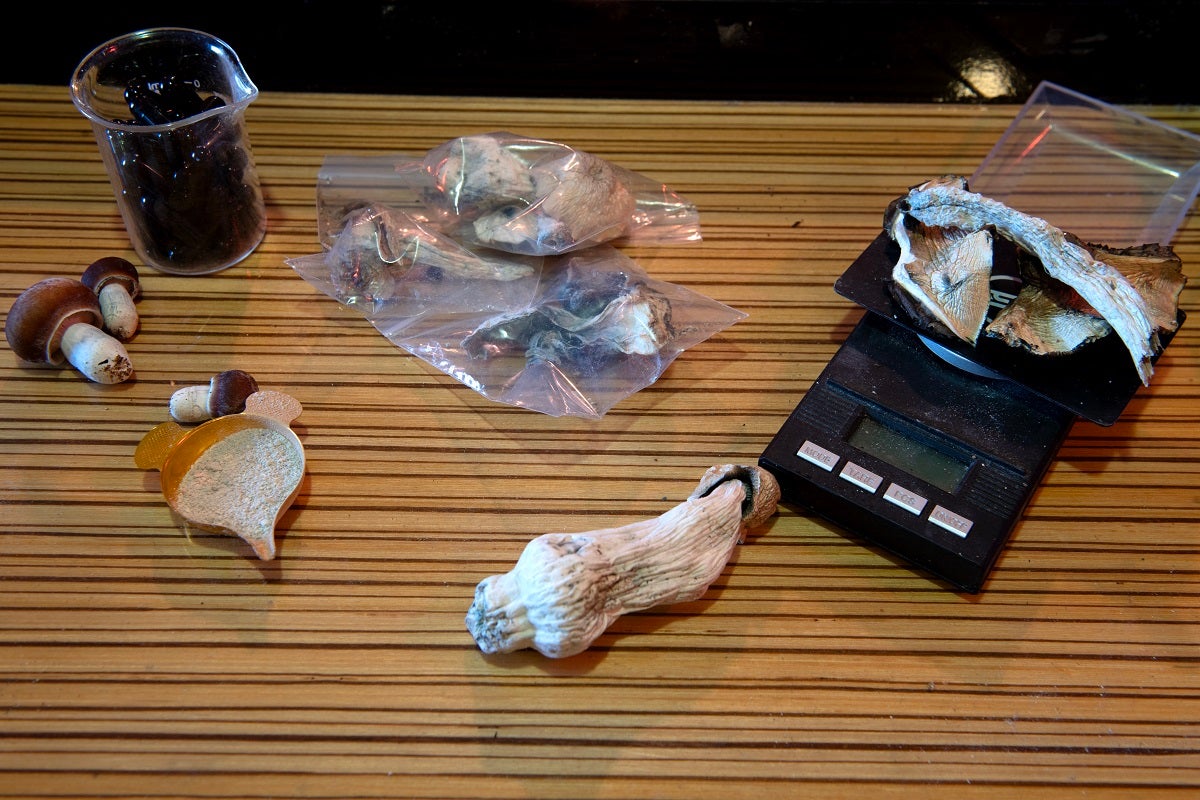Research conducted by scientists at Emory University and Baylor College of Medicine suggests that psilocybin, a compound found in magic mushrooms, may have potential anti-aging effects. Published in the Nature Partnering Journal Aging, the study indicates that this psychedelic compound could enhance lifespan in both mice and potentially humans.
In a two-part study, researchers administered medium-sized doses of psilocybin to older mice. The team later examined the effects of similar doses on human cells, specifically assessing telomere length. Telomeres, which shorten as organisms age, are considered a hallmark of aging. Findings revealed that in both the treated mice and human cells—comprised of fetal lung and adult skin cells—psilocybin was linked to preserved telomere length. This observation suggests that the compound may slow down the aging process at a cellular level.
The treatment also appeared to improve the overall vitality of the mice. They exhibited enhanced survival skills and better fur quality, which researchers believe may further indicate anti-aging properties. Louise Hecker, the senior author of the study, emphasized the lack of direct research on psilocybin’s lifespan-enhancing effects, stating, “The overwhelming majority of what we know about psilocybin is how it impacts the brain.”
Previous studies have hinted at the positive health outcomes linked to psychedelic drugs. A 2021 study found that individuals who used substances like psilocybin, LSD, and mescaline had a lower risk of developing heart disease and diabetes. Other research suggested that recreational psychedelic use may correlate with lower rates of obesity.
While Kosuke Kato, a coauthor of the paper, urged caution in drawing definitive conclusions about the relationship between psilocybin and increased lifespan, he highlighted the significance of their findings. “This is a very exciting and clinically relevant finding that suggests that even when [psychedelic] intervention is initiated late in life, it can have dramatic impacts,” Kato stated.
Researchers acknowledge that much remains to be understood, including optimal dosing protocols for achieving maximum efficacy. Kato expressed hope that future studies will clarify how psilocybin treatment can be effectively applied in medical practice.
Hecker’s enthusiasm for the findings underscores a new era in psychedelic research. She noted, “Psilocybin may represent a disruptive agent that promotes healthy aging.” The next phase of research aims to explore the therapeutic effects of psilocybin across various age-related diseases, expanding the scope of its potential benefits.
As the field of psychedelic research continues to evolve, these findings pave the way for further investigation into the broader implications of psilocybin on health and aging.
